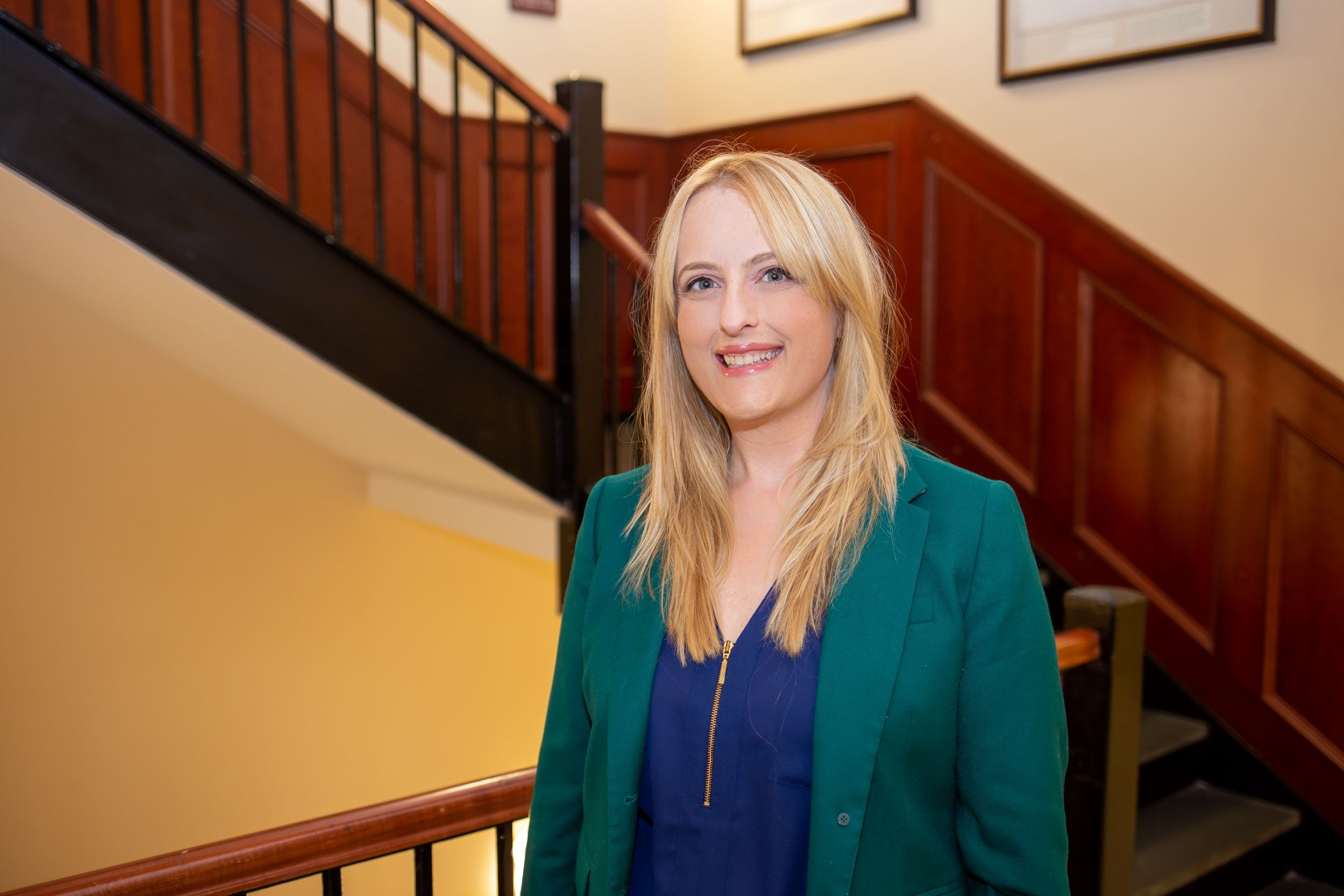Department of Criminology and Criminal Justice
Directory
Kaitlin Boyle
| Title: | Associate Professor |
| Department: | Criminology and Criminal Justice McCausland College of Arts and Sciences |
| Email: | kb49@mailbox.sc.edu |
| Phone: | 803-777-2038 |
| Resources: | Curriculum Vitae [pdf] Google Scholar Department of Criminology and Criminal Justice |

Education
- Ph.D. 2016, University of Georgia, Sociology
- M.A. 2011, University of North Carolina Charlotte, Sociology
- B.A. 2008, The College of New Jersey, Sociology and Women and Gender Studies
Bio
Dr. Boyle's research program focuses on violence, inequality, gender, and mental health. Much of this work investigates how cultural norms about gender and sex shape victims’ understandings of their sexual assault experiences, as well as the emotional, identity, and psychological consequences of these crimes. In particular, she examines how and why women label their assaults “rape” and themselves as “victims” or “survivors.” She has expanded such research to explore the power dynamics involved in, and the consequences of, violence perpetrated in intimate relationships and against law and graduate students. Dr. Boyle also explores how gender inequality, perceptions of police, and public policy relate to college students’ willingness to report and seek help after being the victim of campus violence.
Specialization
- Interpersonal violence
- Deviance
- Mental health
- Gender
Publications
Boyle, K. M., Regoeczi, W., & Meyer, C. B. (2024). State divorce laws, reproductive care policies, and pregnancy-associated homicide rates, 2018-2021. JAMA Network Open, 7(11): e2444199. doi:10.1001/jamanetworkopen.2024.44199
Scaptura, M. N., Boyle, K. M., & Rogers, K. B. (2024) The endorsement of violence against women as compensation for strained masculinity: A test of general strain theory. Feminist Criminology. https://doi.org/10.1177/15570851241274863
Culatta, E., Boyle, K. M., Shaiman, S., & Sutton, T. E. (2024). Justice perceptions, sexual identity, and race: Likelihood of police reporting intentions following sexual assault. Criminal Justice and Behavior, 51(7):1112-1136. https://doi.org/10.1177/01902725231167845
Boyle, K. M. (2024). Doing gender, avoiding crime: The gendered meaning of criminal behavior and the gender gap in offending in the United States. Social Psychology Quarterly, 87(2):131-151. https://doi.org/10.1177/01902725231167845
Boyle, K. M., Jones, P., & Mancik, A. M. (2024). Racialized backlash: A state-level analysis of Black women’s homicide victimization by Black men, white men, and police. Crime & Delinquency, 70(5):1516-1640. https://doi.org/10.1177/00111287221134922